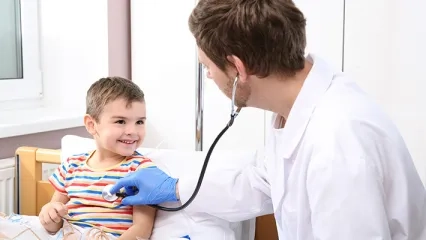Alo Yeditepe
Alo Yeditepe
Which Vaccine Should be Given in Adolescence and When?
Pediatric Infectious Diseases Specialist Assoc. Dr. Emine Manolya KARA said that vaccination is of great importance in adolescence as well as in the first months of life and early childhood, and pointed out that vaccination practices may be interrupted during this period as children in this age group often go to the doctor when they get sick.
Vaccines are one of the most effective ways to prevent serious diseases in children and adults. Reminding that thanks to effective vaccination, it is possible to protect children from many bacterial and viral infections such as measles, rubella, mumps, diphtheria, tetanus, whooping cough, polio, hepatitis B and hepatitis A, Yeditepe University Hospitals Pediatrics, Pediatric Infectious Diseases Specialist Assoc. Prof. Dr. Emine Manolya KARA said that the fact that many infections are no longer seen and forgotten in our country today is one of the most important achievements of our vaccination and immunization history.
Which Vaccines Should I Get During Adolescence?
Vaccinations during adolescence form an important basis for a healthy adulthood and adolescents should be vaccinated in accordance with the vaccination schedule.
“In line with the recommendations of the Ministry of Health, a single dose of adult diphtheria tetanus vaccine should be administered as a reminder in the 8th grade of primary education (10-12 years). This vaccination can also be administered as adult-type pertussis-diphtheria-tetanus vaccine (dTap). Considering that the incidence of whooping cough increases during adolescence, this practice will also provide protection against whooping cough. In addition, HPV vaccination is recommended for boys and girls from the age of 9, immunization in terms of meningococcal disease and annual influenza vaccination, especially for adolescents in the risk group.”
Benefits of Vaccinations During Adolescence
Adolescence is a period when the individual transitions from childhood to adulthood and the body experiences many physiological and psychological changes. Therefore, vaccinations during this period are of great importance for both child and public health.
First of all, since the immune system is still in the developmental stage during this period, vaccinations protect the body against serious and potential diseases. These include infectious diseases such as diphtheria, tetanus, whooping cough (pertussis), meningitis, human papillomavirus (HPV), hepatitis B and influenza. The HPV vaccine, which we recommend especially during adolescence, is also important as it provides protection against various types of cancer, especially cervical cancer.
Vaccination can help prevent health problems not only in childhood but also in later life, with the hepatitis B vaccine reducing the risk of liver cancer.
In addition to protecting individual health, vaccination is also extremely important in protecting public health. Vaccination of adolescents also protects the general health of society. Community immunity means that vaccinated individuals protect unvaccinated or immunocompromised individuals, which prevents the spread of diseases.
Do Vaccines Have Side Effects?
Throughout history, vaccines have been victims of their own success. Unfortunately, many forgotten infectious diseases have re-emerged as a result of vaccine instability/antagonism leading to disruptions in vaccine administration. Our expert reminded that the effect of this has manifested itself most recently with the increase in diseases such as measles and whooping cough, and said, “Vaccines work by stimulating the immune system to produce antibodies, just like when a person gets an infection. However, unlike bacteria and viruses, vaccines do not actually make people sick.”
About
Faculty and Year of Graduation:
Istanbul University Cerrahpasa Medical Faculty Uğur Derman English Programme-2008
”
See Also
- What is Whooping Cough? The Importance of Whooping Cough Vaccination During Pregnancy
- What is Molluscum Contagiosum? What are the Symptoms?
- Precautions to Take Protecting Children from Infections
- Hand Foot and Mouth Disease Symptoms and Prevention Methods
- What is Measles? Symptoms and Treatment
- Flu Vaccination in Children
- Congenital CMV Infection in the Neonatal Period
- Is the Incidence of Reflux Increasing Among Children?
Alo Yeditepe





